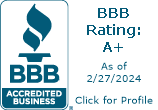When it’s time to sell your Connecticut home, there can be some confusion when determining the value. If you REALLY want to know what it is worth, you can pay to have an appraisal done. An agent should be able to provide you with detailed CMA reports, letting you know what is going on in your neighborhood. Knowing the differences in these home values can set you set your ideal asking price!
What is Market Value vs Assessed Value in Connecticut
Market Value by Definition:
According to Fannie Mae, “Market value is the most probable price that a property should bring in a competitive and open market under all conditions requisite to a fair sale, the buyer and seller, each acting prudently, knowledgeably and assuming the price is not affected by undue stimulus.”
Basically, this is the amount you can expect to get if you keep your house on the market for a few months provided everything goes smoothly and you have potential buyers coming to see your home on a regular basis.
Assessed Value by Definition:
According to Investopedia, “An assessed value is the dollar value assigned to a property to measure applicable taxes. Assessed valuation determines the value of a residence for tax purposes and takes comparable home sales and inspections into consideration.”
Understanding assessed value can be a bit confusing. County property accessors give values to homes for tax purposes, however, these values are not reflective of changes in market value. The difference between the assessed value and the market value is known as the equalization rate. This rate is used by the county to figure your actual property value.
Appraised Value:
But wait, there’s more. Your appraised value can differ from both of these. An appraisal is done by a licensed professional who rigorously checks all aspects of the home. While they might be 100% correct, this is still the opinion of one. Whereas other methods are mathematically calculated based off of your home’s history and market conditions.
What The Internet Has To Say About It:
The large real estate sites have their own formulas for determining property values. These values are broad, and based on market conditions and information entered by users on the site directly. They do not always accurately reflect YOUR home personally. Think of it as Kelly Blue Book for cars. It is a close guess but determining what the ACTUAL market value can be much different. People report seeing these numbers off by $20k, $50k and even more! If you want a more accurate value for your house, you should seek the help of a seasoned realtor or real estate investor who specializes in your area. These professionals can pull comparables on the MLS. This means they can look at other houses within a certain radius of other houses that recently sold, are on the market now, will be coming on the market, or that are currently under contract. The information these professionals have available helps them to formulate a fairly accurate value for your home. They are able to take into consideration things such as age of the house, if it’s been renovated or is it outdated, the size, how many bedrooms and bathrooms. Is there a finished basement that the town does not show in their records. Is there a garage present and if so how many? Does the yard have any special features to note such as a deck or patio, pool, gazebo, garden area, sheds etc? How big is the lawn? Are there a lot of trees, is it level or does it slope? All of these details matter when a professional is looking at comparables and will help them determine the value of your house in this current market.
What it Means For You As A Seller:
Do your homework! Make sure you have all the numbers listed above and understand terms such as the equalization ratio and fair market value. Make sure you are working with a true professional who can help you to accurately determine the market value of your home.
Setting a great asking price is critical. You do not want to set it too high and have to repeatedly lower it to get buyers in the door. Your pricing history is public information, and repeatedly lowering your price can make buyers think there is something wrong with it. And for obvious reasons, you don’t want to set your asking price too low. To get the price you want you must exercise patience and make sure you are working with a true professional in Connecticut.

